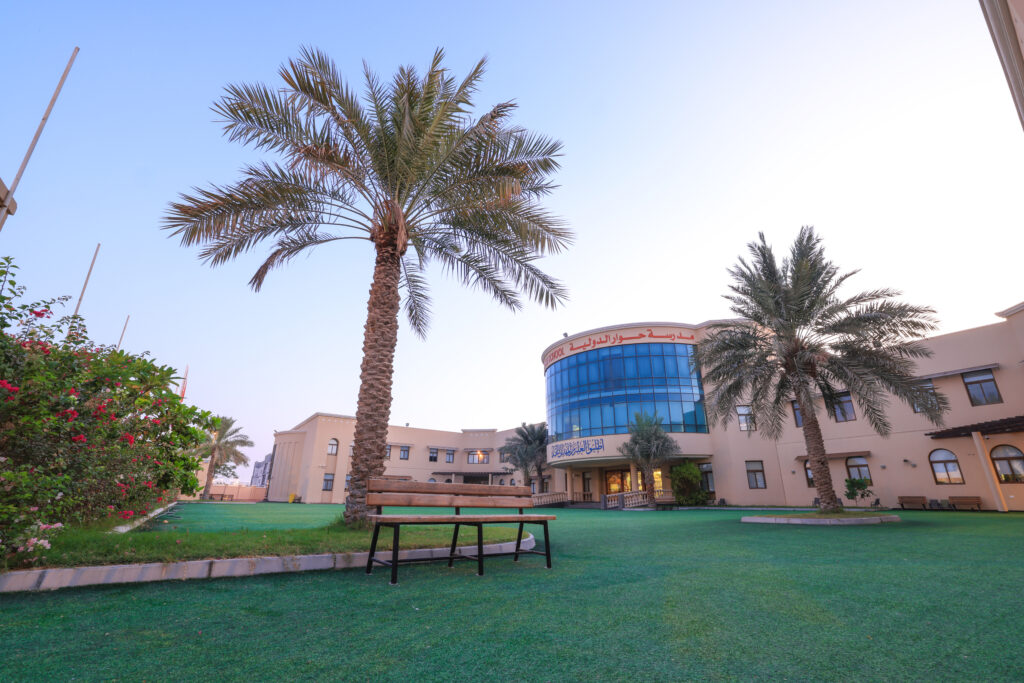The Kingdom of Bahrain (Bahrain) is a small island (727 sq. km, 274 sq. mi.) located in the Arabian Gulf (GMT+3) and the capital is Manama. The word Bahrain literally means “two seas” and refers to spring waters which rise from under the sea. Known in ancient times as Dilmun, Bahrain was an important center of trade by the 3rd millennium B.C. The islands were ruled by the Persians in the 4th century A.D., and then by Arabs until 1541, when the Portuguese invaded them. Persia again claimed Bahrain in 1602. In 1783 Ahmad bin al-Khalifah took over, and the Al-Khalifahs remain the ruling family today. Bahrain became a British protectorate in 1820 and did not gain full independence until August 14, 1971.
Bahrain has a desert climate with plenty of sunshine and very little rain. Summers (from June to September) are very hot and humid with temperatures ranging between 36-48 degrees centigrade. Winters are much more temperate and from October until April the weather is mild and cool, generally ranging between 10-25 degrees centigrade. Rainfall is infrequent and generally occurs between November and January.
Bahrain has a population of about 1,000,000, including about 82% non-Bahraini nationals (February 2008 statistics). The Bahraini nationals are warm, friendly and welcoming to expatriate residents. Bahrain has a history of tolerance to other nationalities and cultures. It is easy to meet and make friends with Bahraini nationals. Although Arabic is the official language, other languages such as English, Farsi, and Urdu are also widely spoken. In fact, one can get by easily without knowing the Arabic language, although learning a few words and phrases is always appreciated.
Bahrain is home to the only Formula One (F1) International Circuit race track in the Middle East. Also located at the circuit are 4WD courses, drag racing and cart racing, as well as public events on a regular basis. Bahrain is home to the region’s biggest and most luxurious spa, the Banyan Tree Spa Al Areen. Bahrain has restaurants, expatriate clubs, pubs, sporting clubs, and movie theaters. Children’s activities include Girls’ Guides and Boy Scouts, football training, dance and music schools, horseback riding, and the Bahrain Water Park. Although public beaches are few, Bahrain offers a wide range of water sports for which the calm shallow Gulf Sea is ideally suited, including sailing, speed boating, paddling, dolphin watching, diving, jet skiing, or simply swimming. A wide array of world-caliber spectator sports are available, including horse racing (although without gambling).
Ramadan occurs during the ninth months of the Muslim year. The start and end time of Ramadan is based on the lunar calendar. During the 30 days of Ramadan, Muslims will fast from sunrise to sunset. Iftar, or breaking of the fast, is one of the observances of Ramadan. School is in session during Ramadan, however, class hours are shortened to accommodate faculty, staff and students who are fasting. During this time of observance, all residents are required by law to refrain from eating, drinking, smoking and chewing gum, in public from sunrise to sunset. However, eating is permitted of non-Muslim residents within the privacy of their own homes and designated areas within the school.
Almost any and everything is available in Bahrain. Grocery chains such as Careforre, Geant, Lulu’s and Jawad carry an array of fresh fruits and vegetables, a wide assortment of meats (although pork can only be found in some markets such as Alosra), specialty items such as taco shells and salsa, baby diapers and formulas, hair products, paper products, etc. contact solution, vitamins, and pain relievers such as Panadol can be found in most pharmacies.
Bahrain has restaurants galore! Almost any type of cuisine can be found from the traditional Arabic flavors to the more exotic Japanese food. There is an area in Bahrain called Adleya that is full of restaurants that offer menus that will appeal to even the pickiest of eaters.
The two big satellite companies recently combined to form Orbit Showtime. Orbit Showtime offers primarily American and British television, movies, sports and a selection of news stations. There are several FM radio station programs in English.
The local currency is the Bahrain Dinar (US$1.00 = 0.378 BD or 378 fils). The Bahrain currency has three decimal places.
In some Arab countries women are required to be completely covered and must wear long dresses with long sleeves. This is not so in Bahrain. Woman may wear whatever they choose as long as it is in good taste. The general rule for both men and women is to wear shirts that cover the shoulders and shorts or skirts that cover the knees. Flimsy and see through clothing is not advisable and will only draw attention. Having said this, it is appropriate in western night spots or to dressier events to wear sleeveless tops as long as they are not too revealing.
Like in any other foreign country, common sense guides us in determining what is safe. Bahrain is a safe environment if common sense is used. Teachers have not felt threatened or unsafe in Bahrain.
School Address
Hawar International School
Building 22, Road 42, Block 910 West Riffa, Kingdom of Bahrain
P.O. Box: 38338
Contacts
Phone: +973 13 666 555
Fax: +973 13 666 554
Email: info@hawarschool.com

